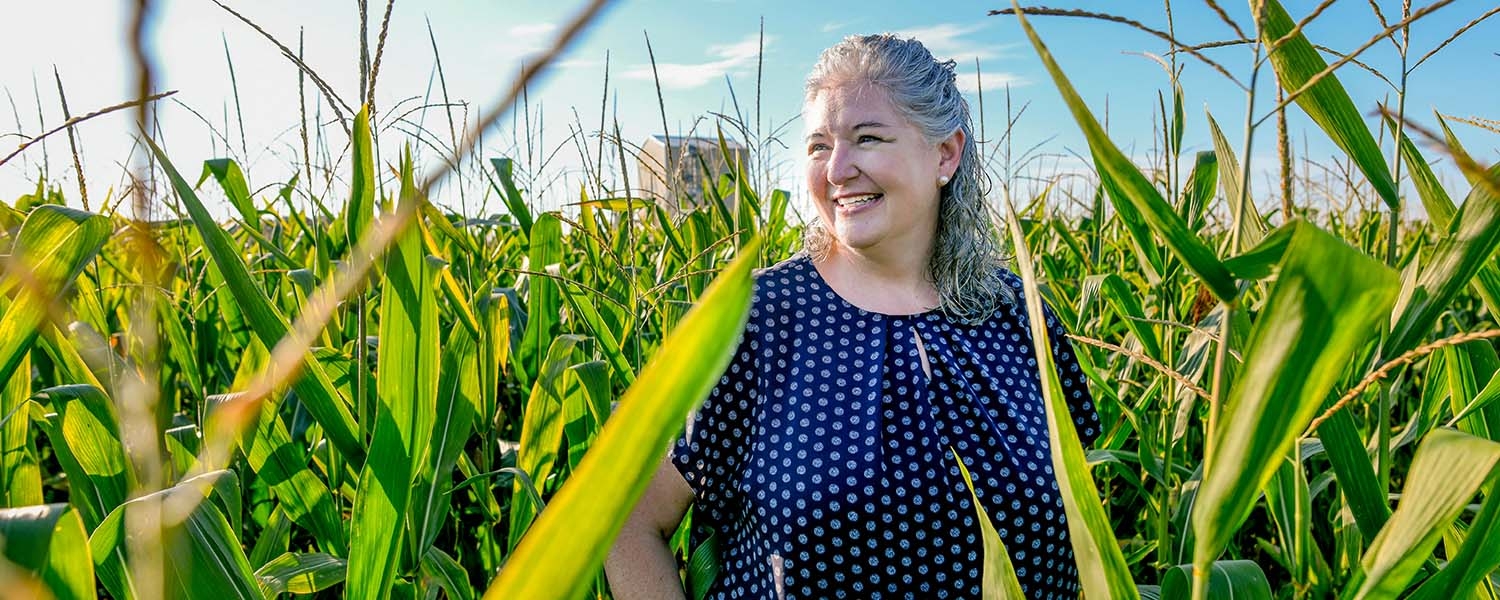
Field Lab Names New Superintendent
Bridget Lassiter brings a can-do attitude to her new role as the first female superintendent of NC State’s Lake Wheeler Road Field Lab.
While working on her master’s and Ph.D. degrees in crop science at NC State, Bridget Lassiter took as many different kinds of classes as she could and looked for study abroad and travel opportunities as well. And she tells current graduate students to do the same.
As the new superintendent of NC State’s Lake Wheeler Road Field Lab, Lassiter is finding that her diversity of knowledge and experience is really paying off, as well as a “can do” attitude. When she interviewed for the position, she told the committee, “My motto is, I may not be an expert, but give me a year, and I’ll get up to speed.”
Lassiter came to the field lab April 1, just after the university had moved many operations to remote status and moved all classes online because of the COVID-19 pandemic. Some farm units had already shut down, and popular public events had to be cancelled.
The field lab is really a working farm of 1,800 acres located only a few miles from campus and surrounded by Raleigh’s urban development. The field lab’s mission is mainly demonstration and outreach, though some research is conducted there. The various farm units range from livestock and poultry production – dairy, beef, swine, poultry and bees – to crops and turf production, and more.
Lassiter was raised in Oregon in a town of just 1,200. Her grandparents owned a farm that they later sold. Her father worked for a company that produced sugar beet seeds, and Lassiter enjoyed spending time with him during the summers.
“Oregon has a really amazing climate, and there are many different kinds of crops that grow there but it’s really a premier site for seed production,” she said. “A lot of the grass seed, like ryegrass or fescue that you put in your yard, you’ll see that it came from Oregon. I grew up going to work with my dad, and riding around in his truck with him, which really ignited my love for agriculture.”
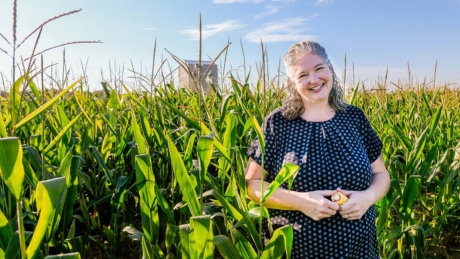
In high school, she joined the FFA Club, which actually ran the local floral shop. Through that experience, she earned a scholarship to study crop and soil science at Oregon State University.
She came to NC State in 2000 to start her master’s program in agricultural and extension education. But she missed doing field work, so she added a dual major of crop science to her degree program. She started her Ph.D. studies in 2006, where she studied integrated pest management in peanuts, and she completed that degree in 2013.
In 2003, she became a full-time employee of the crop science department, where she worked until 2014, when she went to work for the N.C. Department of Agriculture’s plant industry division. She was responsible for a small team focused on control of the noxious plant Witchweed, which parasitizes corn and sorghum, robbing these important crops of their energy.
The weed was such a threat, that farms where it was discovered in the 1960’s could not sell their crops outside of the USDA quarantine area. With only five employees, Lassiter’s group kept the weed contained in North Carolina during the final stages of complete eradication.
“This little plant — it’s about 8 or 12 inches tall — and it’s got a little red flower on it. If you’re a farmer, and it shows up in your field, basically your field is quarantined for at least 10 years, because the seeds are viable in the soil for 10 to 15 years,” Lassiter said.
Lassiter learned about the Lake Wheeler Road Field Lab position from her husband, Shep Lassiter, who works at NC State. The office that oversees field labs and research stations for the College of Agriculture and Life Sciences was going through leadership changes during the time she was interviewing for the position.
“So, I just thought it was really a wild card, but I threw my hat in the ring and said, ‘you know, if the good Lord wants me to get this job, it’ll happen,’” she said.
During the job interviews, she was asked what she knew about construction, because, “you’re probably going to be working with a lot of engineers and construction people out here at Lake Wheeler.”
She responded, “Wow, I have a Ph.D. in crop science; I don’t know anything about construction, but I’ll figure it out.” And she got the job. She is the first woman to serve as superintendent at Lake Wheeler Road, but there are other women in leadership roles at NC State’s research stations and field labs around the state.
Lassiter said that her diverse graduate education experience at NC State helped prepare her for the two very different professional roles she has already held. She advises graduate students to take courses across disciplines and to take every opportunity to travel, both domestically and abroad. “I am thankful for my NC State experience. It prepared me for lots of different jobs,” she said.
I am thankful for my NC State experience. It prepared me for lots of different jobs.
Lassiter describes Lake Wheeler Road as a “county with lots of small towns.” And part of her mission as superintendent is to bring employees together – she plans to hold quarterly meetings so that unit managers can get to know each other across the different plant and animal units. In June, just two months after starting the position, she hosted a socially distanced pancake breakfast for about 13 full-time employees at the field lab.
As superintendent, she also prioritizes organizational and safety issues at the field lab. There are more than 200 buildings, including some old ones that really need to be removed. And there are several plans to develop new facilities at this site, already the most diverse of the NC State field labs.
“This position is so very different than what I was doing three months ago,” she said in June. “But I’ve thrown myself into this job, even though I’m still learning. I’m meant to be here; this is what I’m supposed to be doing,” she said.
There are other big plans in store for the field lab. The university’s Small Ruminant and Equine Units which are closer to Carter Finley Stadium right now will eventually move to Lake Wheeler Road. And a 5G tower has been built to support drone research in the College of Engineering.
Taking over leadership of the field lab in the midst of a pandemic certainly has had its challenges. One of the big events that had to be cancelled this year at Lake Wheeler Road was the very popular Farm Animal Days, which attracts more than 10,000 children and parents to interact with farm animals over the three days of the event.
Another of the field lab’s big events is the annual Turfgrass Field Day, which attracts more than 700 landscape professionals. Recent plans have moved this event completely online, hosting attendees at three different video-conference events.
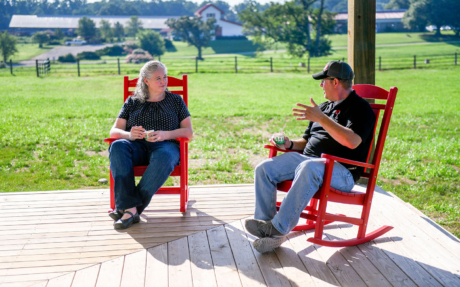
A new dairy museum opened last fall at the dairy unit, and onsite Howling Cow ice cream sales had just begun. While the museum remains closed, the creamery resumed drive-through ice cream sales last summer. The Agroecology Garden normally offers programs for the community and opportunities for volunteering at the farm. Many municipalities and private companies participate in soil science classes and workshops hosted in the field lab’s Booth Building. But those plans have turned out drastically different this summer – many cancelled or moved to online formats.
Lassiter says that Zoom meetings that have become the norm for campus business have saved her a great deal of time. Though the farm is only a few miles from NC State, the trip to and from campus can be time consuming. However, there just is no substitute for meeting with new colleagues in person, so she has been scheduling one-on-one meetings with faculty and staff as needed.
Lassiter and her husband live on his family farm near Four Oaks with their two children and his parents. Like many North Carolina families, her children – Lucy, age 9, and Lincoln, 4 and a half – have been doing school work on their home computer.
But Lassiter longs for the day when she can drive her children around this vast farm and show them what an interesting place it is.
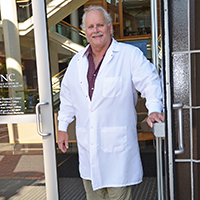
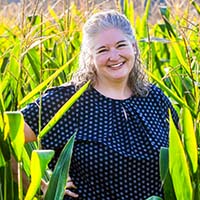


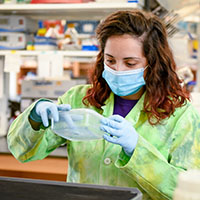
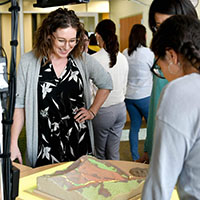

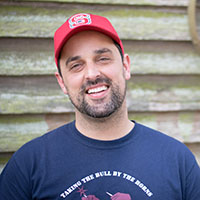
View Comments 0